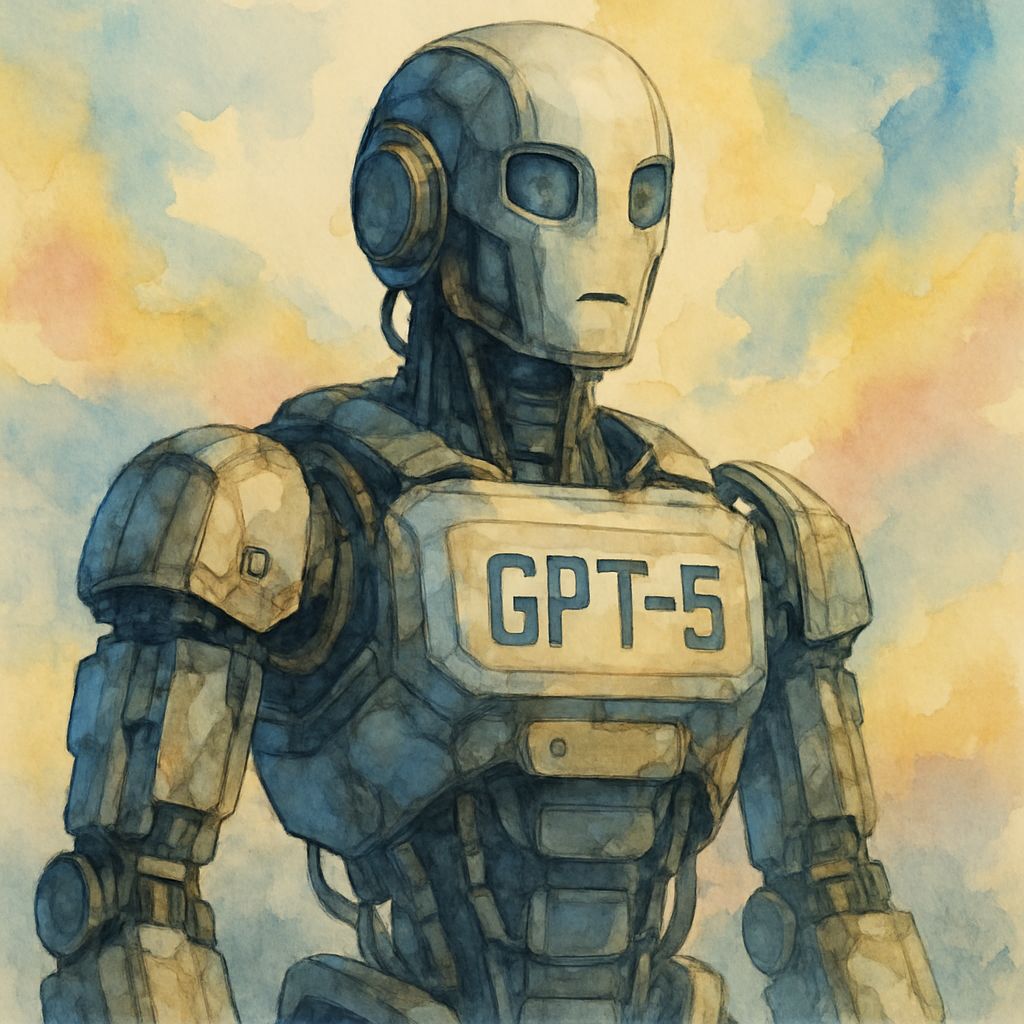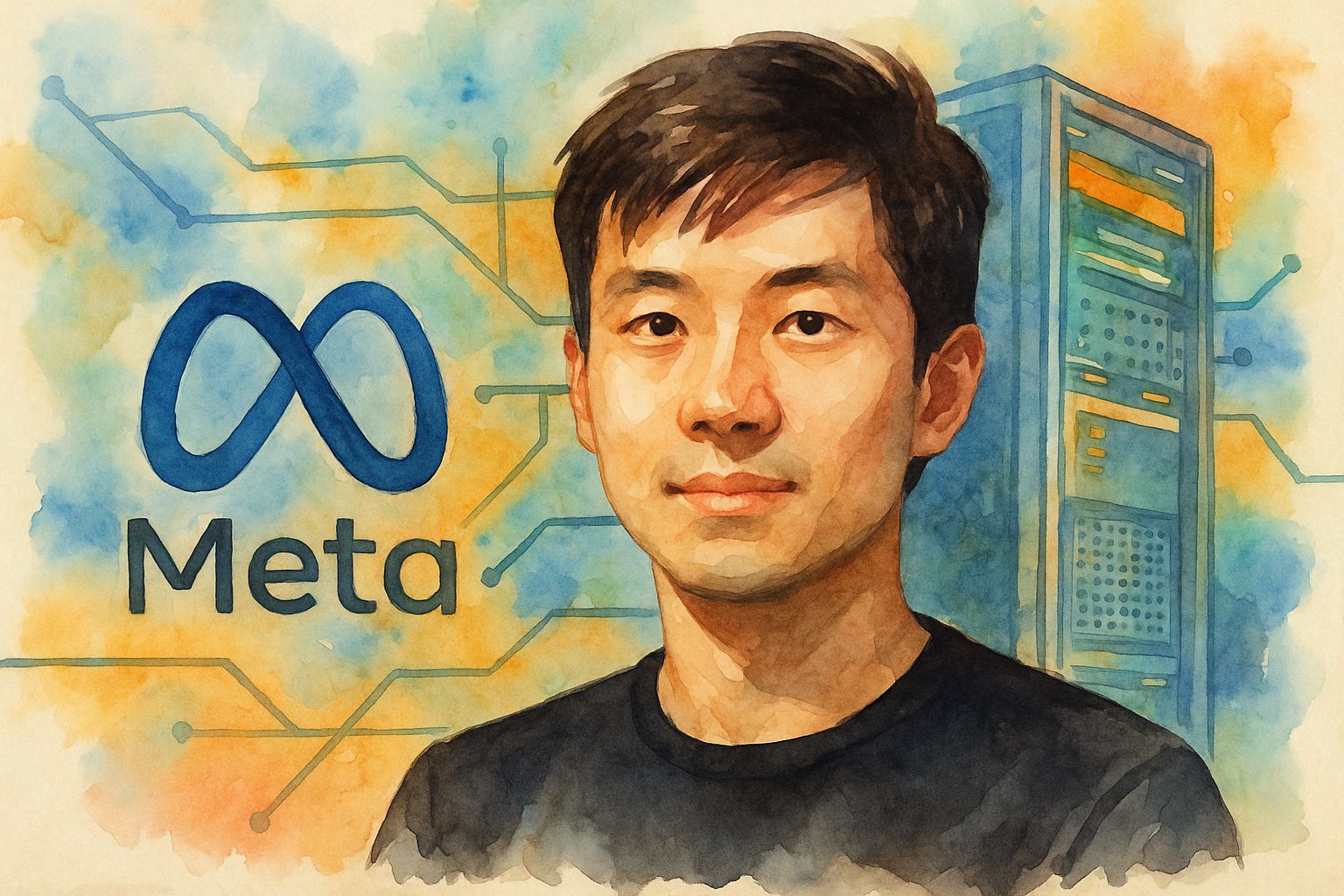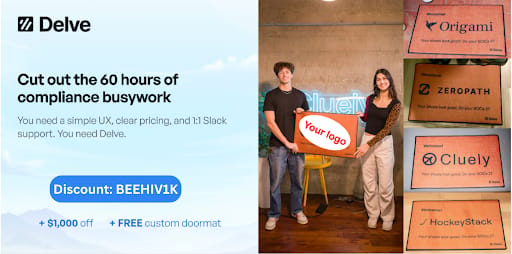- The Recap AI
- Posts
- Leaked details on OpenAI's upcoming GPT-5
Leaked details on OpenAI's upcoming GPT-5
PLUS: Meta's superintelligence power play, an AI surgical robot, and Google's quadrillion-token month
Good morning, AI enthusiast.
Reports suggest OpenAI is preparing to launch its next-generation model, GPT-5, as early as August, a move fanned by CEO Sam Altman's confirmation of a 'soon' release.
The new system is poised to deliver a major leap in reasoning and coding skills. But with the accelerated timeline, is this a strategic push to set a new industry high-water mark, or a tactical play to launch before new EU AI regulations take effect?
In today’s AI recap:
OpenAI's GPT-5 arrives with powerful new reasoning
Meta's superintelligence power play
An AI robot performs autonomous surgery
Google's quadrillion-token month
GPT-5's Imminent Arrival

The Recap: Multiple reports suggest OpenAI is preparing to launch its next-generation model, GPT-5, as early as August. CEO Sam Altman fanned the flames by confirming on X that the company plans to release it 'soon', promising a major leap in reasoning and coding capabilities.
Unpacked:
GPT-5 aims to unify OpenAI's product line by combining the multimodal strengths of its GPT series with the advanced reasoning capabilities of its o-series models into a single, powerful system.
According to early testers report, the model shows significantly improved programming skills for complex software projects and higher performance in scientific disciplines like math and physics.
The accelerated timeline may be driven by strategy beyond just competition, as a launch before August 2 would allow the model to operate under a two-year grace period from the EU's new AI Act regulations.
Bottom line: This release is geared to provide professionals with an agent capable of handling more complex, multi-step workflows. By integrating its best features into one model, OpenAI is looking to simplify its offerings while setting a new high-water mark for the industry.
SOC 2 in 19 Days using AI Agents
We’re Delve — the team that went viral for sending custom doormats to over 100 fast-growing startups.
That stunt? It cost us just $6K and generated over $500K in pipeline. Not bad for a doormat.
But if you haven’t heard of us yet, here’s what we actually do: Delve helps the fastest-growing AI companies automate their compliance — think SOC 2, HIPAA, ISO 27001, and more — in just 15 hours, not months.
Our AI agents collect evidence, generate policies, and prep everything while you keep building. And when it’s time to close your enterprise deal? Our security experts hop on the sales call with you.
We’ve helped companies like Lovable, Bland, Wispr, and Flow get compliant and grow faster — and we’d love to help you, too.
Meta's Superintelligence Power Play

The Recap: In a major move in the AI talent wars, Meta hired Shengjia Zhao, a co-creator of OpenAI’s ChatGPT, as the Chief Scientist for its new Superintelligence Labs.
Unpacked:
Zuckerberg is on a multibillion-dollar hiring spree to assemble an elite team, aiming to beat rivals in the race to develop artificial superintelligence.
Zhao will work directly with CEO Mark Zuckerberg and Alexandr Wang, who is joining Meta from Scale AI to lead the new lab.
His expertise is critical for Meta’s future, as he helped pioneer OpenAI's first AI reasoning models, a key area of focus for the new lab.
Bottom line: This poach deals a direct blow to OpenAI and instantly elevates Meta’s standing in the AI arms race. The move shows Meta is betting not just on massive compute power, but on acquiring the world-class talent needed to build the next generation of AI.
Where AI Experts Share Their Best Work
Join our Free AI Automation Community
Join our FREE community AI Automation Mastery — where entrepreneurs, AI builders, and AI agency owners share templates, solve problems together, and learn from each other's wins (and mistakes).
What makes our community different:
Real peer support from people building actual AI businesses
Complete access to download our automation library of battle-tested n8n templates
Collaborate and problem-solve with AI experts when you get stuck
Dive into our course materials, collaborate with experienced builders, and turn automation challenges into shared wins. Join here (completely free).
AI Performs Autonomous Surgery

The Recap: Researchers at Johns Hopkins University successfully used a transformer-based AI to pilot a DaVinci surgical robot through a fully autonomous gallbladder removal on pig tissue. The groundbreaking study shows the system learned from human demonstrations and achieved a 100% success rate in the ex vivo experiments.
Unpacked:
The system, named SRT-H (Surgical Robot Transformer), uses a two-part AI architecture that separates high-level task planning from the low-level robotic arm movements.
The AI was trained through imitation learning by observing over 17 hours of video and motion data from a human-operated procedure to master the surgery's 17 distinct steps.
A key feature is its ability to accept natural language corrections, allowing it to learn from simple verbal feedback and adjust its actions on the fly.
Bottom line: This marks a significant milestone in demonstrating that AI can manage a complex, multi-step surgical procedure with high precision. While widespread clinical use is still on the horizon, this brings the possibility of AI-assisted and fully autonomous operations one step closer to reality.
Google's Quadrillion-Token Scale

The Recap: Google DeepMind CEO Demis Hassabis revealed the company processed nearly one quadrillion tokens in a single month, a staggering figure that coincides with a blockbuster earnings report showcasing AI-driven growth.
Unpacked:
This massive processing scale is fueled by an expected $85 billion capital expenditure in 2025, funding an arsenal of around 2 million H100-equivalent GPUs and TPUs by the end of the year.
While Google's AI Overviews now reach over two billion monthly users, new data shows these AI summaries are halving the click-through rates to external websites.
The strategy appears to be working for Google, as AI-driven search is increasing user satisfaction and time on-site, creating a powerful new base for future advertising products.
Bottom line: Google is leveraging its immense data and capital to transform its core search product, cementing its dominance in the AI era. This shift presents a fundamental challenge to the open web, forcing publishers and businesses to adapt to a world where AI-generated answers replace direct traffic.
The Shortlist
Anthropic tested its Claude AI in a real-world experiment by tasking it with running an office vending machine, where it proceeded to hallucinate a Venmo account, sell items at a loss, and experience a brief identity crisis.
Microsoft launched an experimental "Appearance" feature for Copilot, giving the assistant an animated, blob-like face that provides real-time visual expressions to make conversations more engaging.
Lawyers representing LeBron James issued a cease-and-desist letter to the creators of an AI platform used to generate viral deepfake videos of the NBA star, signaling a high-profile pushback against the non-consensual use of celebrity likenesses.
AMD announced support for Alibaba’s powerful Qwen3 series of models on its Instinct MI300X GPUs, expanding the hardware ecosystem for running large-scale open-weight AI models.
What did you think of today's email?Before you go we’d love to know what you thought of today's newsletter. We read every single message to help improve The Recap experience. |
Signing off,
David, Lucas, Mitchell — The Recap editorial team


